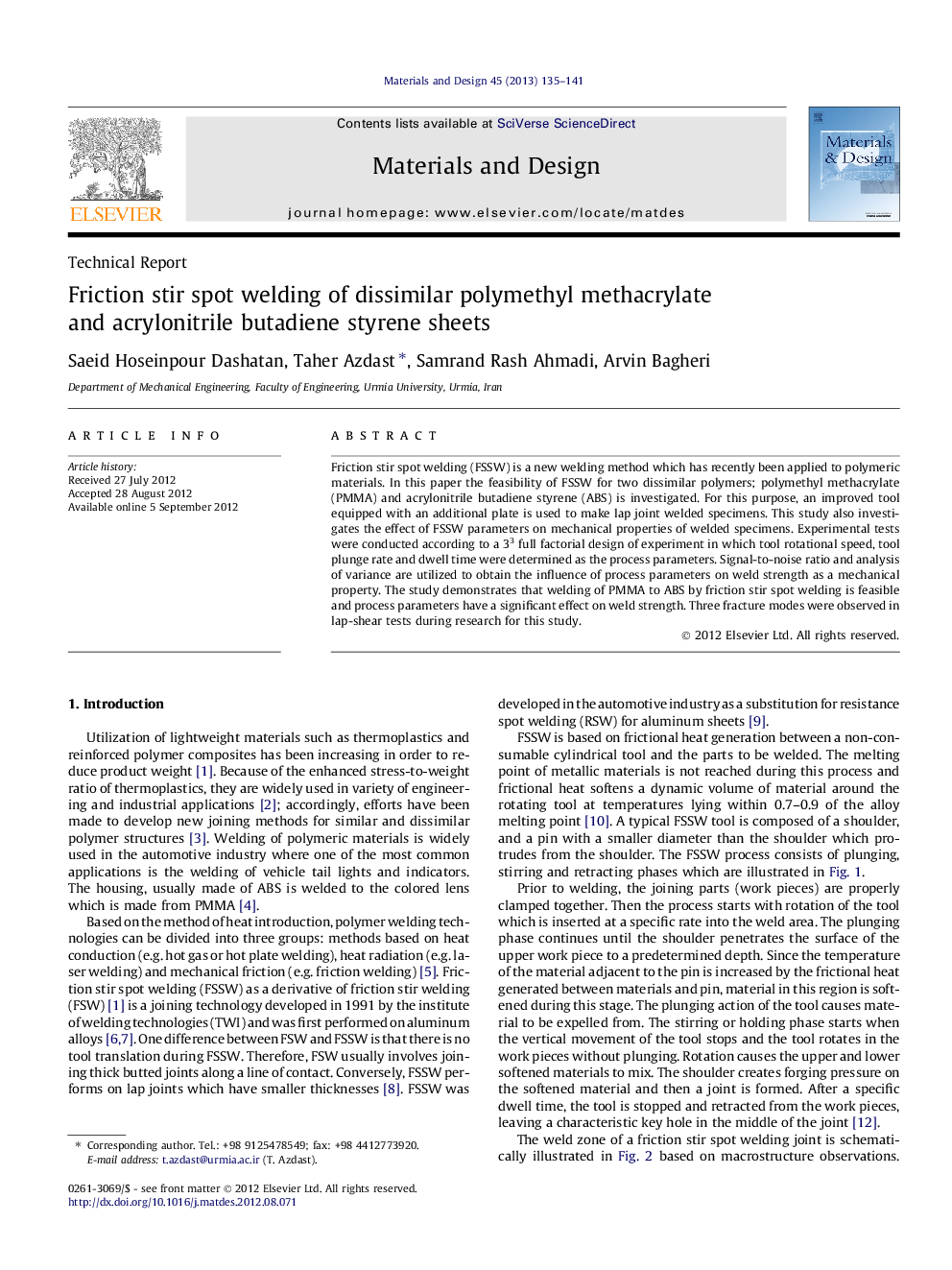| Article ID | Journal | Published Year | Pages | File Type |
|---|---|---|---|---|
| 830233 | Materials & Design (1980-2015) | 2013 | 7 Pages |
Friction stir spot welding (FSSW) is a new welding method which has recently been applied to polymeric materials. In this paper the feasibility of FSSW for two dissimilar polymers; polymethyl methacrylate (PMMA) and acrylonitrile butadiene styrene (ABS) is investigated. For this purpose, an improved tool equipped with an additional plate is used to make lap joint welded specimens. This study also investigates the effect of FSSW parameters on mechanical properties of welded specimens. Experimental tests were conducted according to a 33 full factorial design of experiment in which tool rotational speed, tool plunge rate and dwell time were determined as the process parameters. Signal-to-noise ratio and analysis of variance are utilized to obtain the influence of process parameters on weld strength as a mechanical property. The study demonstrates that welding of PMMA to ABS by friction stir spot welding is feasible and process parameters have a significant effect on weld strength. Three fracture modes were observed in lap-shear tests during research for this study.
► Feasibility of friction stir spot welding for dissimilar PMMA/ABS sheets. ► Design of an improved tool equipped with an additional plate to make lap joint welded specimens. ► Investigation of the effect of FSSW parameters on mechanical properties of welded specimens. ► Using signal-to-noise ratio and ANOVA to obtain the effect of process parameters on weld strength. ► Observation of three different macrostructure fractures of samples during tensile tests.
